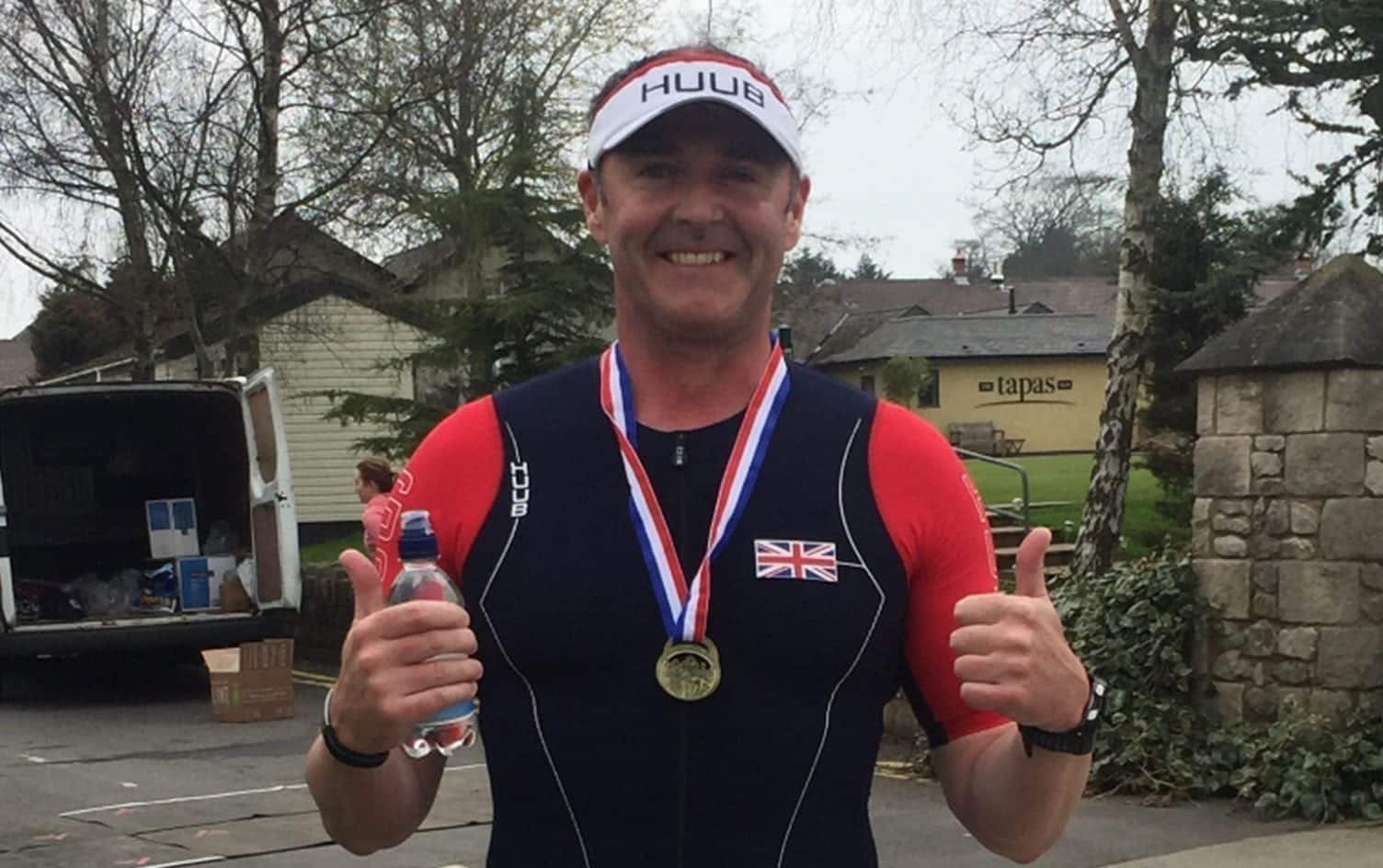
Welcome to our “Moments of Will” series, where we’ll feature community members who have faced adversity on their health and fitness journeys, only to come back stronger and better than ever. While they could have let their challenges keep them from their goals, each of them found the will to fight for their physical, emotional and mental health.
James Henderson is used to being hard on his body. Having worked physically demanding jobs in the military and private security since he was 16 years old, pushing his limits and muscling through physical challenges is almost second nature.
In high school, Henderson ran competitively in the United Kingdom and carried that competitive side with him when he joined the armed forces after graduating. He won the physical training test — a brutally intense course that tests stamina and strength — to earn his Red Beret, the signature of the Parachute Regiment in the U.K., he says.
A few years later, he transferred to the Royal Military, where he became a physical training instructor, beefing up his fitness resume with highly physical specialist training courses. In short, “fitness was my life,” he says.
Then an accident changed everything.
DOWNWARD SPIRAL
Despite being “fit as a butcher’s dog,” Henderson injured his knee during a parachuting operation, leaving him crippled with pain. Eventually he had surgery on the injury, but that only knocked him off his game further. “I took a very long time to recover and as such, my fitness declined and my diet took a turn for the worse. Junk food became my comfort,” he admits.
Soon after, he left the military and things got worse. “I ended up with a massive eating disorder — I couldn’t stop comfort eating,” he says.
The more weight Henderson gained, the sorrier he started feeling for himself. “I resented fitness,” he says. “My joints hurt; I couldn’t run more than a half-mile without stopping; I was depressed and I started drinking a lot.” It became a vicious cycle — the more out of shape he got, the worse he felt about himself and the more he turned to unhealthy habits to handle the frustration.
FLEXING HIS MOTIVATION MUSCLES
Henderson had entered a danger zone. “The joke in “Austin Powers,” ‘I eat because I’m unhappy, and I’m unhappy because I’m fat, and I’m fat because I eat,’ really summed up my life,” he jokes. “I had convinced myself I’d get back to my fitness goals sometime in the future.”
Then something snapped in his mind. “I was doing a job that was supposed to be all about fitness, and I didn’t portray that image,” he says about his work in private security. “I decided to stop feeling sorry for myself and get off my butt.”
To get back into a fitness routine he could feel proud of again, Henderson drew strength from his boot camp-style roots. “I’d always blamed my lack of returning to fitness on my knee not being strong enough — but I knew this was rubbish,” he says. “I tested my knee and knew I didn’t have an excuse anymore.” He started walking on the treadmill and eventually worked his way up to running as he had been prior to his accident. He was pleased to find himself fueled by the familiar rush of endorphins.
To make a big and lasting change in his health, however, he knew he needed a big goal. “I’d entered a half Ironman race when in the military and never completed it. I wanted to prove that I could do it,” he says. At the same time, a very close friend who had introduced Henderson to triathlons passed away. A tribute to him became part of Henderson’s mission. “I was determined to compete in his honor,” he says.
CROSSING THE FINISH LINE
Henderson wanted to create a sustainable shift in his health, so he planned to work on his Ironman tribute goal over two years, setting health micro-goals along the way.
“As my fitness was improving, I realized my unhealthy relationship with food was still present and that I needed to address this,” he says. Today, he recognizes it’s not all about pushing his body to the limit, but about developing healthy habits and using food to fuel his goals.
In 2016, Henderson completed the half Ironman triathlon he had set his sights on. The following year, he became a full Ironman finisher, completing a 2.4-mile swim, 112-mile bike ride and 26.2-mile run. “It was such an emotional race — one minute I’d be smiling, the next crying my eyes out for no apparent reason,” he says. “I was carrying my friend with me every stroke of my arms in the swim, every revolution on the bike and every step of the run.”
Even when he injured his Achilles tendon 8 miles into the run, he was determined not to let another health setback get between him and his motivation — though running on the injury may not have been the best idea in hindsight. “I absolutely trashed my body,” he says. “But I continued through purely on mental ability. I had to finish as I’d planned to propose to my partner on the finish line.” Luckily, he did finish. And she said yes.
CREATING WILL IN OTHERS
Henderson is now working on earning his personal training certification so he can help people in the same situation he was in when he felt stuck and depressed after his knee injury. “The main goal will be to promote well-being, fitness and nutrition — the whole body from top to toe, as well as the inside being treated,” he says. “Hopefully I can assist with improving people’s lives with my past experiences.”
Now when he feels stuck, he reminds himself and others of Ironman’s mantra: “Anything is possible.”




